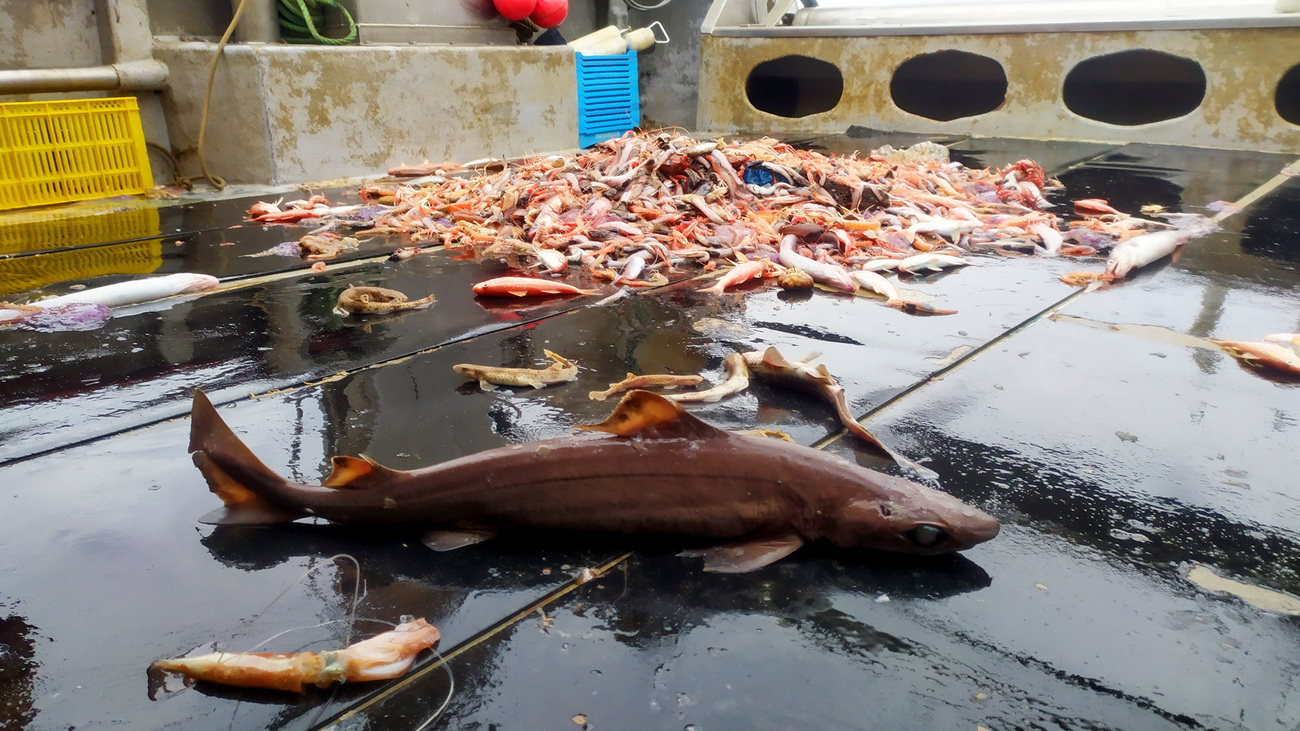Barbara Slee
Deepwater sharks are killed to make cosmetics—but a CITES decision could save these species from extinction
Deepwater sharks are killed to make cosmetics—but a CITES decision could save these species from extinction
Deep beneath the ocean’s surface swim the mysterious gulper sharks—prehistoric, odd-looking, slow-moving ocean dwellers which have survived for millions of years. But now, they are facing a crisis.
Three-quarters of gulper shark species are threatened with extinction due to human demand for their products. There are very few regulations for catching deep-sea sharks anywhere in the world, and these sharks are particularly sought-after for their liver oil.
As gulper sharks grow slowly, mature late in life, and produce very few young, once their populations are depleted, it can take years to recover—if they do at all. They are among the ocean’s most vulnerable animals. Gulper shark populations have plummeted by more than 80% in some regions. But thanks to new proposals for international trade protections, there is hope.

Why gulper sharks?
These sharks were once caught as bycatch, but in recent years, they’ve been targeted for their livers. Their liver oil is rich in a chemical compound known as squalene—a substance used in cosmetics, health supplements, and pharmaceuticals. Squalene is also found naturally in human skin sebum, which is what makes it so popular for these products.
It can be found in a wide array of products, from makeup and aftershave to sunscreen, face cream, nicotine and travel sickness patches, fish oil supplements, and hemorrhoid treatments. It’s considered by manufacturers to be liquid gold. The demand for these products spurs deep-sea shark fishing and threatens the survival of gulper shark species. But of all the industries, cosmetics are thought to be the top driver.
The demand for cosmetics fuels unsustainable levels of shark fishing, often in deep and poorly regulated waters. While some cosmetics companies have publicly declared that they will not use shark liver oil in their products, it’s difficult to know which products contain shark squalene as labelling laws don’t require this level of detail.
How you can help
Labels do indicate whether the product contains derivatives of animal origin or is plant-based. If you’re shopping for cosmetics, be sure to look for products that explicitly state they are vegan or use plant-based squalene. By avoiding products that use shark liver oil, we can reduce demand and lessen the number of sharks killed.
But sharks need legal protections, too. Unregulated trade threatens to drive numerous species to extinction. Despite the mounting evidence presented at international forums that gulper sharks are in sharp decline, they still don’t have global protections.
This year, there is hope for gulper sharks. The UK and EU, together with several other countries, have submitted a proposal to include all gulper sharks in CITES Appendix II, a decision that would create vital safeguards—regulating trade over international borders and improving monitoring.
This November, CITES parties meet for COP20 in Uzbekistan to decide the fate of these species and many others. IFAW calls on all CITES Parties to support the UK–EU proposal to list gulper sharks in Appendix II, along with proposals to protect other threatened shark and ray species.
Gulper sharks play a key role in maintaining healthy deep-sea ecosystems. Protecting them means protecting ocean ecosystems, which ultimately benefits people and the planet.
Related content
Our work can’t get done without you. Please give what you can to help animals thrive.